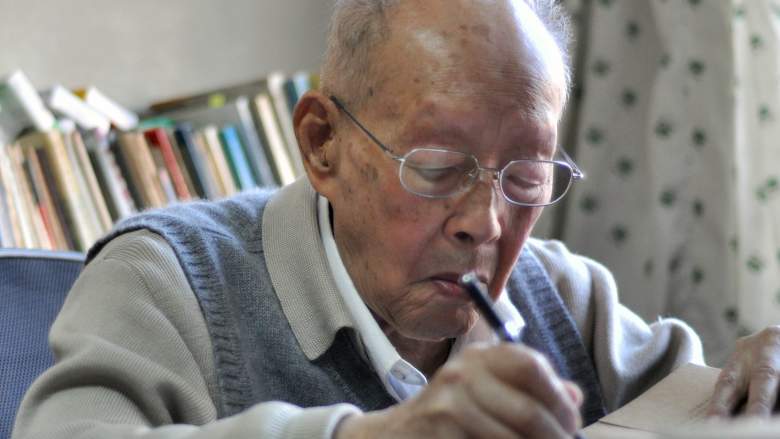
Zhou Youguang, the celebrated Chinese linquist who created language standards that altered the world, is the subject of a January 13, 2018 Google Doodle that honors what would have been his 112th birthdy.
“The O’s in today’s Doodle flip from Pinyin (Gǔgē) to Chinese characters (谷歌). Were it not for celebrated linguist Zhou Youguang, this phonetic translation would never have come to life, and the world would still be referring to ‘Beijing’ as ‘Peking,’ and to ‘Chongqing’ as ‘Chungking,'” notes Google, explaining the honor.
According to Google, “Born on this day as Zhou Yaoping, this storied linguist later adopted the pen name ‘Yougang’ because he wanted to ‘bring light’ to the world. Today, we celebrate what would’ve been Yougang’s 112th birthday with a special place in the spotlight.”
Here’s what you need to know:
1. Zhou Youguang Has Been Named the ‘Father of Pinyin’
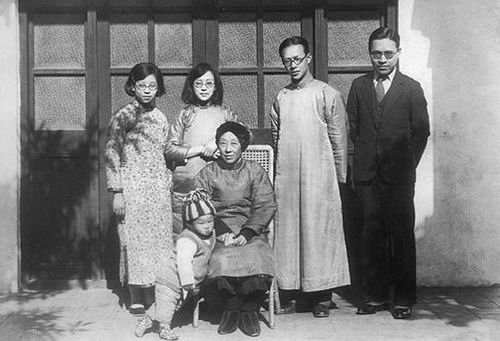
Zhou Youguang with family.
The term, “the Father of Pinyin,” came from Youguang’s three-year long effort to develop “the system of ‘spelled sounds’ that is now the international standard for Romanized Chinese,” Google reports.
According to Google, “the new system transformed China’s literacy rate, providing more natural passage into the written language, which requires mastering thousands of characters. It bridged multiple Chinese dialects with its shared designations of sound. Today, schoolchildren learn Pinyin before characters, and it is often used to input characters on smartphones and computers.”
NPR described this as a new system “to convert Chinese characters into words with the Roman alphabet.” Added the radio station, “Pinyin, which was adopted by China in 1958, gave readers unfamiliar with Chinese characters a crucial tool to understand how to pronounce them.”
2. Zhou Youguang Was Also a Prolific Author, Further Demonstrating His Passion for Language
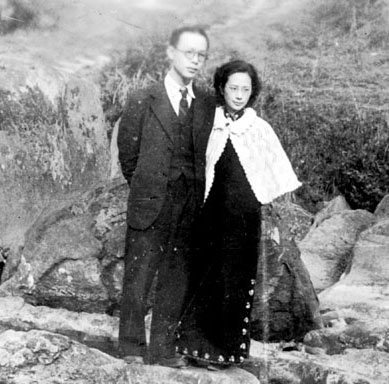
Zhou Youguang.
Zhou Youguang’s interest in language did not stop at linguistics innovation. He was also a prolific author. “Pursuing his love of language throughout his life, Youguang authored more than 40 books and translated the Encyclopedia Britannica into Chinese,” Google noted.
However, it was his linguistics work that most altered Chinese society. “Before Pinyin, 85 percent of Chinese people could not read, according to the BBC. Now, UNICEF says the literacy rate in China hovers at about 95 percent,” NPR reported.
Zhou once told the BBC of his pioneering work: “We spent three years developing Pinyin. People made fun of us, joking that it had taken us a long time to deal with just 26 letters.”
3. Amazingly, Zhou Youguang Died at the Age of 111
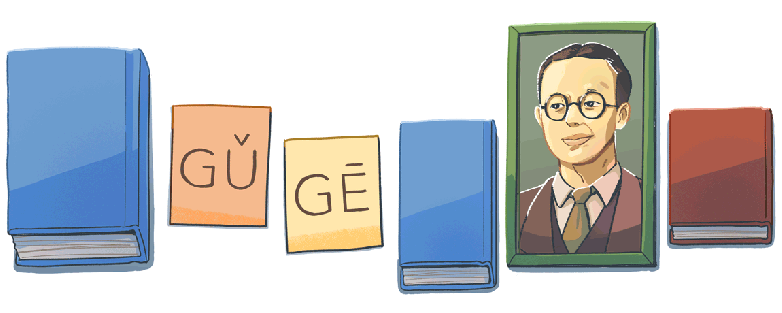
Google Doodle on Zhou Youguang.
When you read that Google is honoring the numerically high birthday of some legend, it’s tempting to assume the person died years ago. After all, the 2018 Google Doodle is honoring the 112th birthday of Youguang. However, amazingly, he lived until the age of 111, dying in January 2017.
That’s according to The New York Times obituary announcing his death.
4. Youguang Was ‘an Outspoken Critic of the Chinese Government’
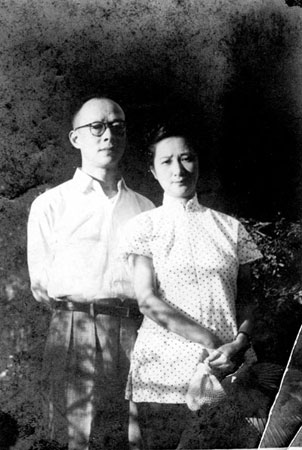
Zhou Youguang.
During his lifetime, Youguang also showed great political courage, according to The New York Times obituary on him.
“In recent decades, with the comparative invincibility that he felt great age bestowed on him, Mr. Zhou was also an outspoken critic of the Chinese government,” reported the Times, which quoted him as saying in 2012, “What are they going to do? Come and take me away?”
The Times noted that Agence France-Presse Called Zhou “probably China’s oldest dissenter” in 2015. In China, noted the Times, his monumental achievements went largely unknown. He did face persecution during his life, however, reported the BBC, which noted that he was “later sent to the countryside for re-education during Mao’s Cultural Revolution.”
5. Zhou Was Born During the Qing Dynasty to a Government Servant
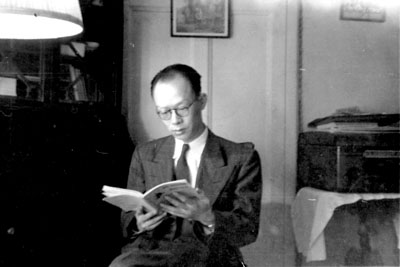
Zhou Youguang.
According to Brittanica, Zhou was born Zhou Yaoping; his later name Youguang means “illuminate.” He was “born during the waning years of the Qing dynasty, under which his father held a government post,” the site reports.
Zhou studied at an Episcopal school founded by U.S. missionaries and, reports Brittanic, “graduated (1927) with an economics degree from Guanghua University (now East China Normal University), also in Shanghai.”
He was married to Zhang Yunhe, described by Brittanica as “the daughter of a well-known family who would become an expert on kunqu, an important form of Chinese opera” and lived for a time in Japan. He also lived in the United States for a time, where he worked on Wall Street, the site reports.